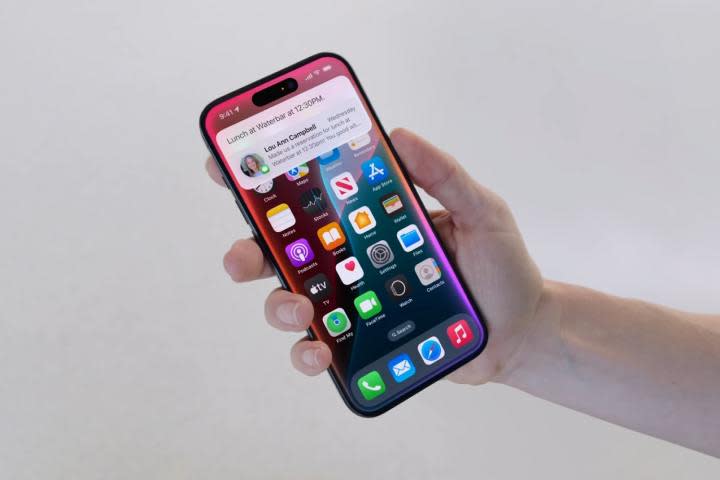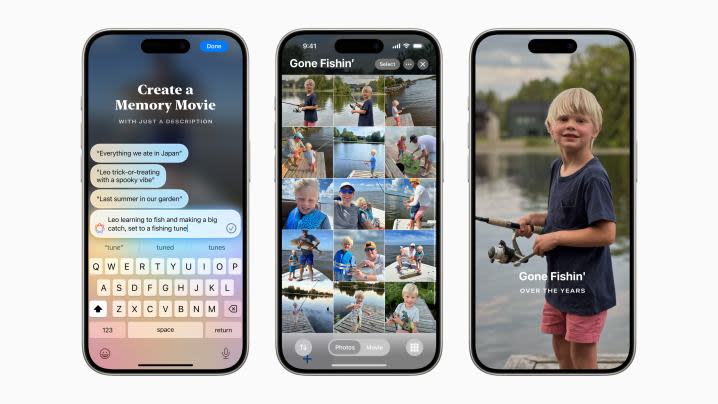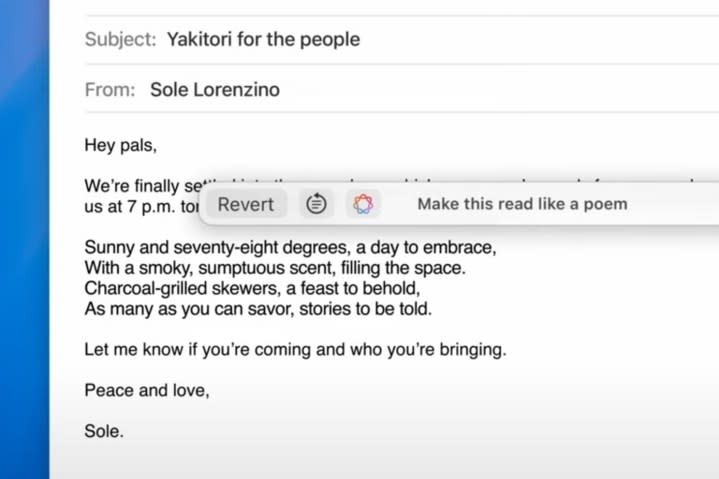The internet is a sticky mess, and Apple just gave us an AI mop

If less is more, then yesterday’s AI announcement from Apple was both modest and well, by implication, huge.
Sure, you can use AI to create your own emojis, find the right images for a presentation, or transcribe phone calls, but the real theme of Apple’s long-awaited AI fiesta was the ability to remove content from your life. And I’m not talking about crushing centuries of human ingenuity into an iPad. Apple Intelligence, as Cupertino’s AI variant is called, feels more like a Marie Kondo for your iPhone than a Picasso painting — and it comes at a time that the internet’s clutter problem has never been worse.
The poison and the remedy
Unlike the chabot interface you probably know from ChatGPT and Google Gemini, Apple Intelligence is more of a series of features baked into Apple apps.
It will figure out which emails in your inbox need attention, summarize messy reply threads, and even help you be more concise as you tap out a reply. The intrusive notifications that swarm your iPhone’s lock screen can likewise be prioritized, summarized, and tailored by AI to be less disruptive.
It’s not just about combating the outside forces vying for our time. Even our own mountains of content can be popped in the AI sauce pan and boiled down to a rich nostalgia gravy: Memory Mode helps turn your mountains of photos and clips into a cohesive video with a prompt like “Leo learning to fish and making a big catch, set to a fishing tune.”

If it sounds like I’m dismissive, let me stop you right there: I want all of these features. From coupon codes to notifications of subscription increases, my inbox is as messy as anyone’s. And that’s just the beginning of the digital inundation most of us face daily. Throw on group text threads, reminders, plus all the bleeps and bloops from home security cameras, robot vacuums, and smartwatches, and it’s little wonder we need AI to sort the 13th low battery notification on the back door lock (yawn) from the alert that tomorrow’s flight time just changed (oh, crap).
We’ve applauded Apple for giving us AI tools we genuinely need. But it’s hard to miss the irony that AI is both the levee that protects us from the rising river, and the upstream sewage plant disgorging the very effluent lapping at its shores.
Just look at Google. Google Search has become so fundamentally plagued by scammers pumping it with low-quality AI content that it introduced AI Overviews several weeks ago to summarize the garbagescape for you. “Let Google do the Googling for you” is a real slogan, not a new spin on the old Xzibit meme. We’re so awash in content that we need content to tell us which content to consume.
The trash clogging Google’s arteries is created by voracious businesses trying to exploit AI. But you and I aren’t immune. As easy AI tools proliferate, AI will creep into our personal communications, too. Apple showed off AI-powered writing tools generating a poem for your housewarming invite.

Cute. But it’s hard not to imagine that the AI-generated poem is precisely the kind of crap someone else will use AI to filter out when they just need to know what time they’re supposed to show up with the pasta salad.
Which will we end up using AI for? It’s looking a lot like both. And if history is any indication, that’s not exactly unprecedented, or anything to fear.
It’s up to us
Like any technology, AI will be what we consumers make of it. Remember the halcyon days of GeoCities and Angelfire, when suddenly anyone could author a website? As nostalgic as I am for those animated “under construction” signs now, they were a mess. Our mess, created with whatever primitive tools we could get ahold of.
It took more, better internet tools — like early Google — before the internet could become a less chaotic place with real utility. Which is why Big Tech doesn’t get off the hook for the garbage monsoon generated with early AI: The way new technologies are handed to us matters. As different companies rush to AI-ify everything they touch, we’ve seen plenty of cringe-inducing junk by founders who clearly never made it past the look-what-we-can-do phase. And we’ve also seen some truly exciting game changers.
Its approach isn’t perfect, but Apple has been the best so far at crafting AI tools with clear intention. Hopefully, other companies take notice, and help usher this technology past its Pets.com era of hype and into something we can really use. Because regardless of how carefully some of us choose to deploy its wonders, we’re already behind a slime trail of greedy companies trying to wring every dollar they can from it. And we’re going to need a big mop.


